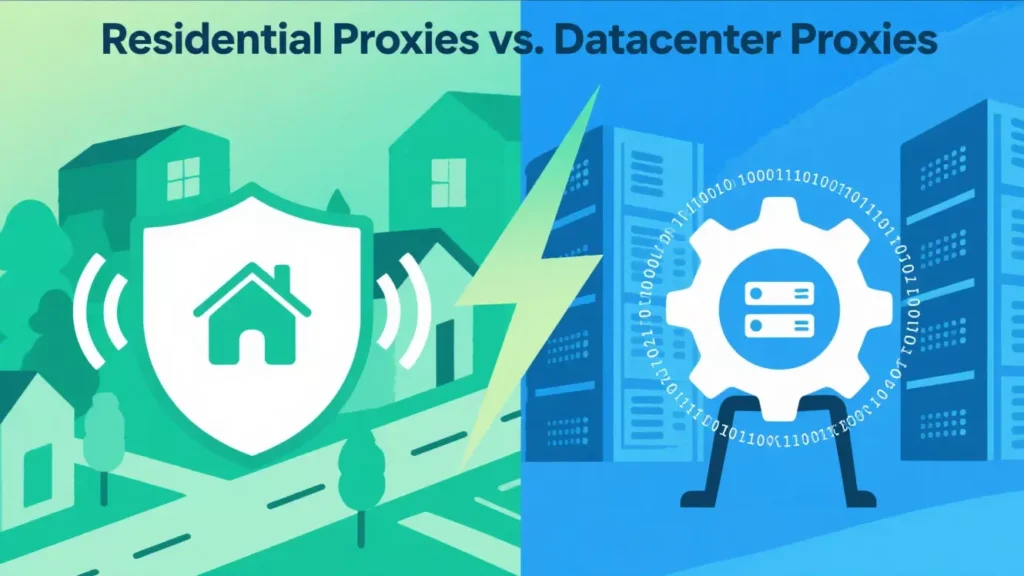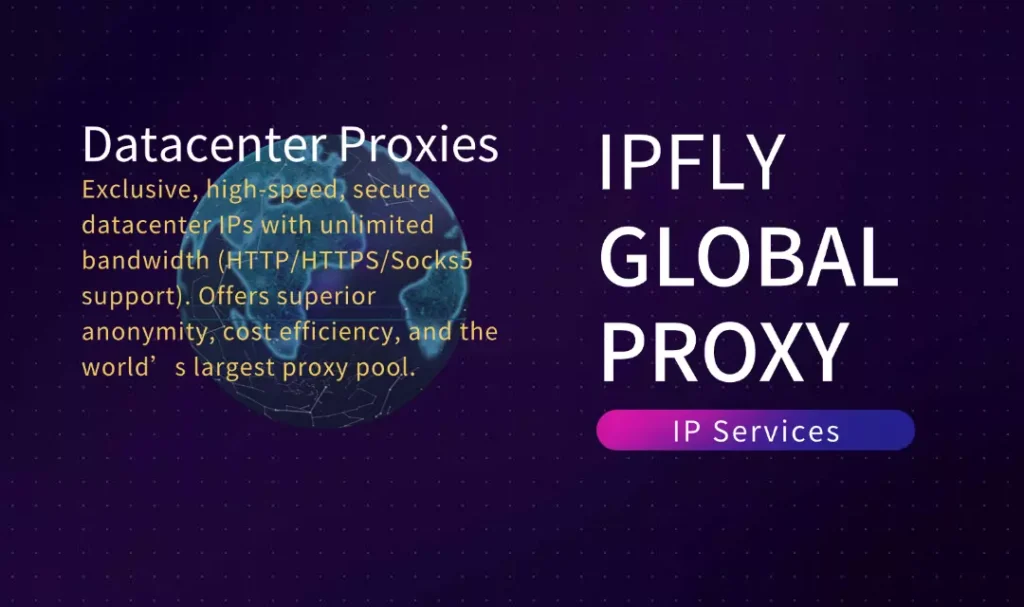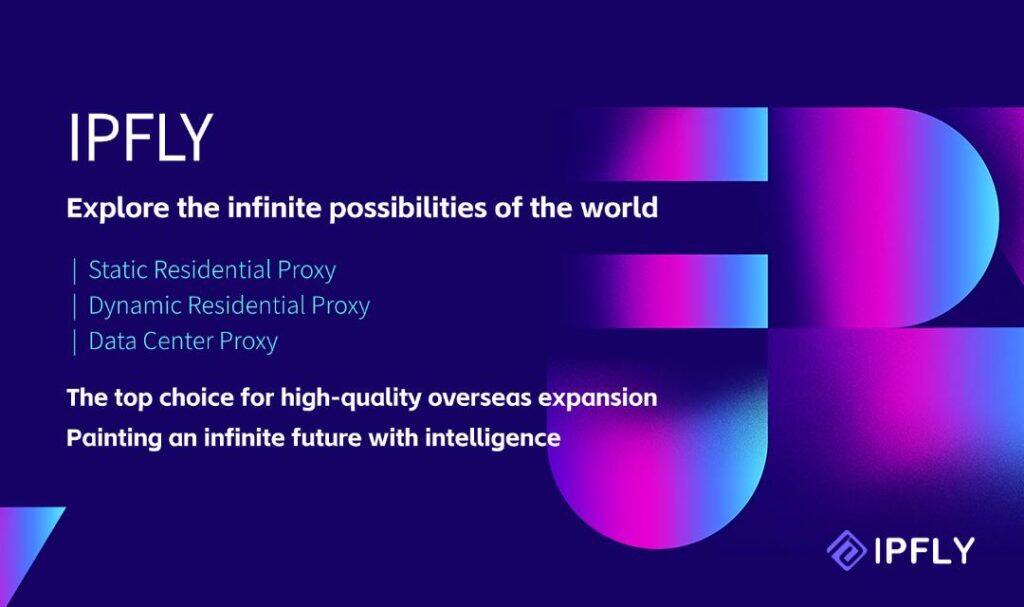In the world of internet privacy, security, and web scraping, proxies have become essential tools for businesses and individuals alike. However, not all proxies are created equal. Two of the most popular types are residential proxies and datacenter proxies. Each offers distinct advantages and disadvantages depending on the use case, budget, and technical requirements.
This comprehensive guide will walk you through the key differences between residential and datacenter proxies, helping you understand which is the right choice for your needs. Whether you are running marketing campaigns, managing social media, or conducting data scraping, understanding these proxies will allow you to optimize your online activities effectively.

What Are Residential Proxies?
Residential proxies route your internet traffic through IP addresses assigned to physical residential devices by Internet Service Providers (ISPs). These IPs are tied to real home users and locations, making them appear as legitimate users to websites.
Key Features of Residential Proxies:
- Real IP addresses: Residential proxies use genuine IPs from real devices, making them less likely to be flagged or blocked.
- Geo-targeting: Since IPs come from actual locations worldwide, you can target content or ads to specific countries or cities.
- High anonymity: Because they resemble normal users, residential proxies offer strong anonymity for activities requiring stealth.
What Are Datacenter Proxies?

Datacenter proxies are IP addresses provided by data centers and cloud service providers rather than ISPs. These are not tied to physical locations or residential users but are virtual IPs hosted on servers.
Key Features of Datacenter Proxies:
- High speed: Datacenter proxies usually provide faster connection speeds and lower latency.
- Cost-effective: They tend to be cheaper than residential proxies, making them attractive for large-scale or bulk operations.
- Easy scalability: Many datacenter proxy providers offer large pools of IPs suitable for heavy-duty tasks.
Comparing Residential and Datacenter Proxies
1. Trust and Legitimacy
Residential proxies are generally considered more trustworthy by websites since they appear to be regular users. This reduces the risk of bans or CAPTCHAs. Datacenter proxies, on the other hand, can be easier for websites to detect and block due to their artificial nature and use by multiple users simultaneously.
2. Speed and Performance
Datacenter proxies usually outperform residential proxies when it comes to speed and latency. Because they operate on powerful servers in data centers, they offer consistent, high-speed connections. Residential proxies rely on end-user connections that may vary in speed and reliability.
3. Cost
Datacenter proxies are more affordable, making them ideal for budget-conscious projects. Residential proxies require more infrastructure and are often priced higher due to their authenticity and difficulty to obtain.
4. Use Cases
- Residential proxies are perfect for tasks needing high anonymity and geo-targeting, such as:
- Sneaker purchasing bots
- Social media account management
- Ad verification and market research
- Accessing geo-restricted content
- Datacenter proxies suit projects that require speed and volume but can tolerate occasional blocks, such as:
- Bulk data scraping
- SEO monitoring
- Automated testing
How to Choose the Right Proxy for Your Needs
Consider Your Task
Identify the priority of your project. If you need reliable access without frequent blocks, residential proxies are better. If speed and volume matter more and you can manage occasional blocks, datacenter proxies might be the choice.
Evaluate Your Budget
Residential proxies tend to be costlier. For startups or small projects, datacenter proxies offer a more economical option, but at the risk of lower reliability.
Factor in Geo-targeting Needs
If your work demands targeting specific countries or cities, residential proxies with a diverse IP pool provide more accurate localization.
Why IPFLY Residential and Datacenter Proxies Stand Out
Choosing a reliable proxy provider is as important as choosing the proxy type. IPFLY offers an extensive range of proxy solutions tailored to meet diverse business needs. Their residential proxies come from real ISPs worldwide, providing high success rates and strong security. At the same time, their datacenter proxies offer fast, scalable options for bulk operations.
With IPFLY, users benefit from a robust infrastructure, transparent pricing, and excellent customer support, making it a trusted choice in the proxy market.
Conclusion

Both residential and datacenter proxies have unique strengths and weaknesses. Your choice should be guided by the nature of your tasks, budget constraints, and the level of anonymity or speed you require. Residential proxies offer unmatched legitimacy and geo-targeting at a premium price, while datacenter proxies deliver speed and cost-effectiveness with some risk of blocking.
For businesses seeking quality, reliability, and scalable solutions, IPFLY provides both proxy types, backed by advanced technology and dedicated support. Explore their offerings at https://www.ipfly.net/ to find the best proxy fit for your projects.
Ready to improve your online operations? Join the IPFLY Telegram community for updates and support: https://t.me/IPFLY_PROXY


